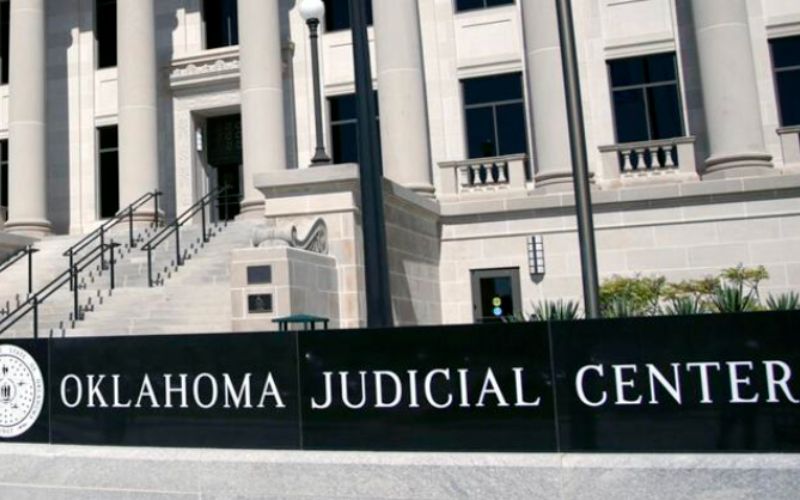
- Details
- By Native News Online Staff
In 2020, Muscogee (Creek) Nation enrolled tribal member Alicia Stroble filed for an income tax refund for the previous three years based on the fact that she lived within her tribe’s reservation and was employed by the tribe. Two years later, a judge for the Oklahoma Tax Commission ruled in Stroble’s favor. But the tax commission rejected the decision, and Stroble appealed.
The tax commission argued Stroble doesn't live on reservation land, but on private land (within reservation boundaries) owned by an individual, and is therefore ineligible for any state income tax exemption.
Three Oklahoma tribes—Cherokee Nation, Chickasaw Nation, and Choctaw Nation— filed a joint brief in support of Stroble, contending that collecting income taxes from tribal members employed by their tribe amounts to a sovereignty issue that contradicts established law.
The tribes cited legal precedent established by the U.S. Supreme Court in 1993, where the court held that “a state may not tax the income of a tribal member who lives and works in her tribe’s Indian Country.”
“The Nations’ sovereignty is threatened because…If the State has the power to convert reservation economic activity into state tax dollars, it will negate ‘the right of reservation Indians to make their own laws and be ruled by them’ and jeopardize each Nation’s ability to operate programs and services that benefit their members and the State,” the brief states.
Oklahoma’s Governor Stitt—an enrolled Cherokee citizen— posted a video on X saying his goal is to ensure “fairness across the board.”
"If the Supreme Court rules that one race doesn't have to pay taxes, then no one should,” he said. “It's that simple.”
Tribal leaders disagree and point to the broader implications that hang in the balance of the legal challenge.
“The dispute raises broader questions regarding the interpretation of tribal sovereignty, federal law, and the tax obligations of Tribal citizens within Indian Country,” Muscogee (Creek) Nation Principal Chief David W. Hill said in a statement. “All of which hold great significance in relation to Indian Country’s autonomy.”
More Stories Like This
50 Years of Self-Determination: How a Landmark Act Empowered Tribal Sovereignty and Transformed Federal-Tribal RelationsPrairie Band Potawatomi Nation Fires Executives After ICE-Related Contract Sparks Outcry
Tlingit Haida Tribal Business Corporation Clarifies Federal Contracting Work
Homeland Tour Offers Deeper Understanding, Appreciation of Chickasaw Roots
Klamath Tribes Seek to Reverse Judge’s Removal in Water Rights Case
Help us defend tribal sovereignty.
At Native News Online, our mission is rooted in telling the stories that strengthen sovereignty and uplift Indigenous voices — not just at year’s end, but every single day.
Because of your generosity last year, we were able to keep our reporters on the ground in tribal communities, at national gatherings and in the halls of Congress — covering the issues that matter most to Indian Country: sovereignty, culture, education, health and economic opportunity.
That support sustained us through a tough year in 2025. Now, as we look to the year ahead, we need your help right now to ensure warrior journalism remains strong — reporting that defends tribal sovereignty, amplifies Native truth, and holds power accountable.
 The stakes couldn't be higher. Your support keeps Native voices heard, Native stories told and Native sovereignty defended.
The stakes couldn't be higher. Your support keeps Native voices heard, Native stories told and Native sovereignty defended.
Stand with Warrior Journalism today.
Levi Rickert (Potawatomi), Editor & Publisher


